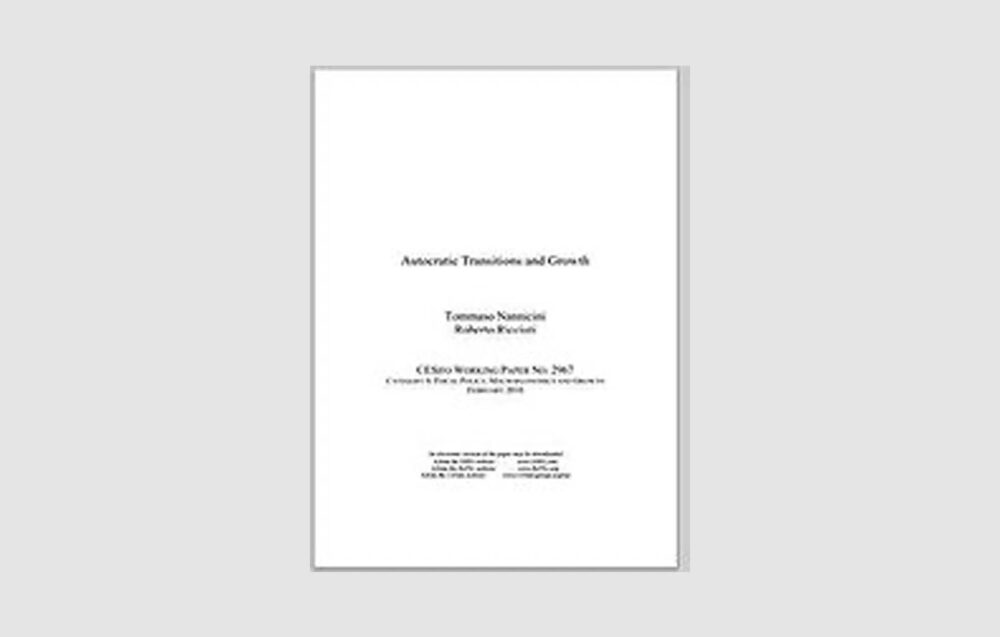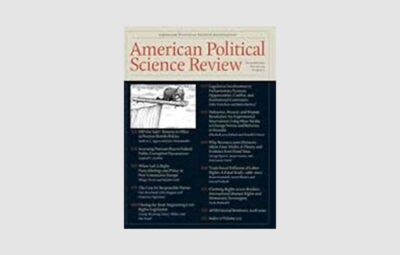In this paper we use a transparent statistical methodology – synthetic control methods – to implement data-driven comparative studies about the impact of autocratic transition on real per capita GDP. The applied methodology compares the growth of countries that experienced a transition to autocracy with the growth of a convex combination of similar countries that remained democratic, and it accommodates for the time-varying impact of unobservable heterogeneity. To implement this statistical framework, in a panel of 160 countries, we focus on 14 episodes of transition from democracy to autocracy. We find that the effects of autocratic transitions come in all shapes and sizes, since our data are split in almost equal parts between insignificant, negative, and positive effects. We also find that negative effects tend to get worse over time, and that African countries are badly affected by the autocratic transition possibly because of a resource curse.
Autocratic Transitions and Growth
Joint with Roberto Ricciuti



